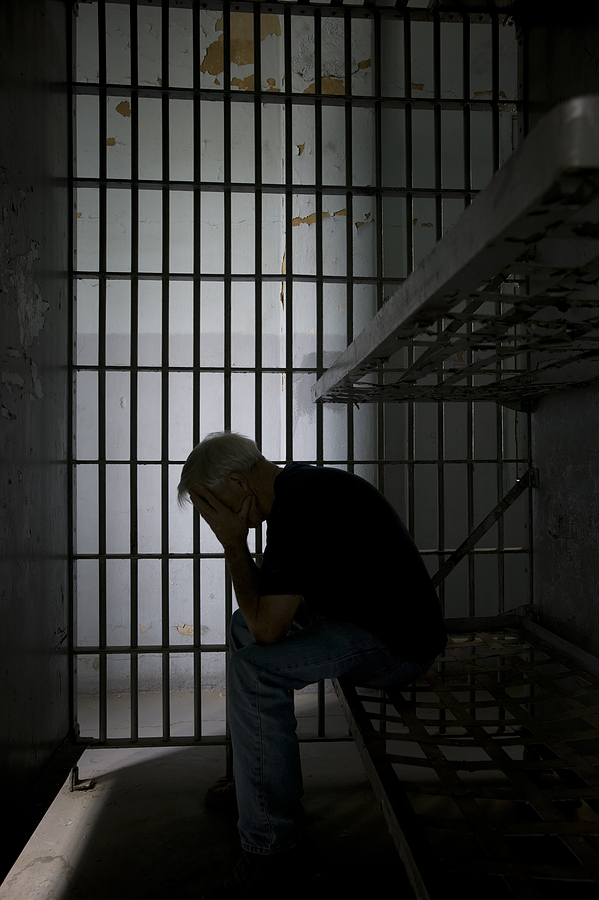 I think it would be safe to say that if you found yourself in prison for whatever reason, then you could say that whatever plans you had for life, at best they were now on hold and at worst you have at least temporarily completely failed. Having done different forms of prison ministry, I have spoken to those who tell me of all they had at one time and that now it is all gone. So when one thinks of being in prison, one does not say that they have succeeded in all their plans. That is unless you are like St. Paul.
I think it would be safe to say that if you found yourself in prison for whatever reason, then you could say that whatever plans you had for life, at best they were now on hold and at worst you have at least temporarily completely failed. Having done different forms of prison ministry, I have spoken to those who tell me of all they had at one time and that now it is all gone. So when one thinks of being in prison, one does not say that they have succeeded in all their plans. That is unless you are like St. Paul.
In today’s second reading, we are reading a small part of the letter to the Colossians. Paul is writing from prison and notice he is celebrating his accomplishments that he is doing as he remains in prison. He is supplementing Christ’s suffering for the sake of those to whom he is writing and for the whole kingdom of God.
Now to understand the environment, we need to understand Roman times. The Roman Emperor was considered a divinity and, therefore, to say anything against him or to worship another God was considered a crime. I don’t know how deep the parallel goes, but strangely enough, in an article in the New Yorker, we see a similar dynamic in Kim Jong Il the dictator of North Korea. He is considered divine and saying anything against him is a crime. You cannot even put a cup of coffee down on his picture in a newspaper. Clearly, life in North Korea is harsh, but certainly prison life is harsher.
Notice Paul does not say that life is wonderful in prison, but that he is suffering and takes joy in his suffering. He knows that he is adding to the power of the Kingdom of God and bringing others to salvation just because he is suffering in prison.
Paul continues by defining what it means to be a disciple of Christ and he defines it broadly. Therefore, he is not describing himself, but you.
This is a part of a greater passage which describes who Jesus Christ is and then brings forth the hope and  the mission of His followers. You and I, he indicates, are not just subjects of Christ, we are agents of his working not only for our own salvation but the salvation of all who will seek him. We constitute his own body. Therefore, together we bring Christ to the world. However, Christ suffered in many ways, and therefore, as the body of Christ our suffering is likewise a part of our existence.
the mission of His followers. You and I, he indicates, are not just subjects of Christ, we are agents of his working not only for our own salvation but the salvation of all who will seek him. We constitute his own body. Therefore, together we bring Christ to the world. However, Christ suffered in many ways, and therefore, as the body of Christ our suffering is likewise a part of our existence.
We serve Him in many ways and everything that we do to orient ourselves to Him becomes part of that service of Christ. One way we do this is through the wisdom that we receive in our relationship with Christ. This wisdom changes our way of thinking in order that we may know and act as disciples of Christ on their way to salvation.
 One way we see this wisdom work is basically in Paul’s attitude towards suffering. It is a human concept and not an incorrect one to do all one can to not suffer, however, when suffering comes our way how do we look upon it? In Paul’s mind, we recognize that it is a form of vocation in which our sufferings bring forth the salvation of all, this is what the Church calls redemptive suffering. Paul understands at this time in his life, he is suffering, but that is something God has ordained for him to do in service to the Kingdom. He embraces it and rejoices in it.
One way we see this wisdom work is basically in Paul’s attitude towards suffering. It is a human concept and not an incorrect one to do all one can to not suffer, however, when suffering comes our way how do we look upon it? In Paul’s mind, we recognize that it is a form of vocation in which our sufferings bring forth the salvation of all, this is what the Church calls redemptive suffering. Paul understands at this time in his life, he is suffering, but that is something God has ordained for him to do in service to the Kingdom. He embraces it and rejoices in it.
This does not mean we should become people who seek to suffer, but it does mean when suffering becomes part of our life, we should not consider it a wasted action or even a failure.
Our struggles in our life, when offered to God, become the means by which men and women are saved. They have no value in themselves, but as a form of prayer to God, they become added to the various forms of prayer for the salvation of others.
This means that we as Christians have a different concept of suffering than those around us. Suffering should be alleviated when possible and our work to alleviate the suffering of others is essential, but suffering is also redemptive when it cannot be prevented.
But this attitude to suffering is part of a greater thought of orientating everything to Christ. We have a call as community to be Christ focused so that everything we do can be seen as being Christ focused and Kingdom focused. Now obviously none of us have mastered this. Yet, this is our call.
Let me put this in practical terms. Somerville does not have a true gang problem. However, there is always that concern of those who will be yanked into gangs. Gangs are demonic. One person argued with me against that teaching, within a year he was doing time for engaging in assault with a deadly weapon upon a rival gang member. I think my point was made for me.
There are all kinds of programs and ways to prevent the youth from getting into gangs. But there is also our call as people of prayer. If you suffer, have you thought of offering up your suffering for the salvation of others including to help those vulnerable to gangs, prayers to give them protection from the manipulation of gang recruiters? Have you considered in taking your role as member of the body of Christ of praying for the conversion of Gang members. Paul understood these ideas, and certainly, lived them. However, he called us to do the same. Recognize your role as part of the body of Christ and act on it. Even in your suffering you can serve Christ well. The saints understood this and lived it daily. Let us do the same. They did this by orienting all to Christ. It is the call that each of us have. Let’s do it.
call as people of prayer. If you suffer, have you thought of offering up your suffering for the salvation of others including to help those vulnerable to gangs, prayers to give them protection from the manipulation of gang recruiters? Have you considered in taking your role as member of the body of Christ of praying for the conversion of Gang members. Paul understood these ideas, and certainly, lived them. However, he called us to do the same. Recognize your role as part of the body of Christ and act on it. Even in your suffering you can serve Christ well. The saints understood this and lived it daily. Let us do the same. They did this by orienting all to Christ. It is the call that each of us have. Let’s do it.
God Bless You,
Fr. Robert J Carr
Fr. Carr is an alliance member of the New Song Community (Canção Nova). He is the pastor of St. Benedict Parish in Somerville, MA and is the editor of this blog.
Photo Credits all via bigstockphoto.com
Top: LouOates
Middle Top: MichaelJung
Middle Bottom: Tim Nichols
Bottom: Kivrin

